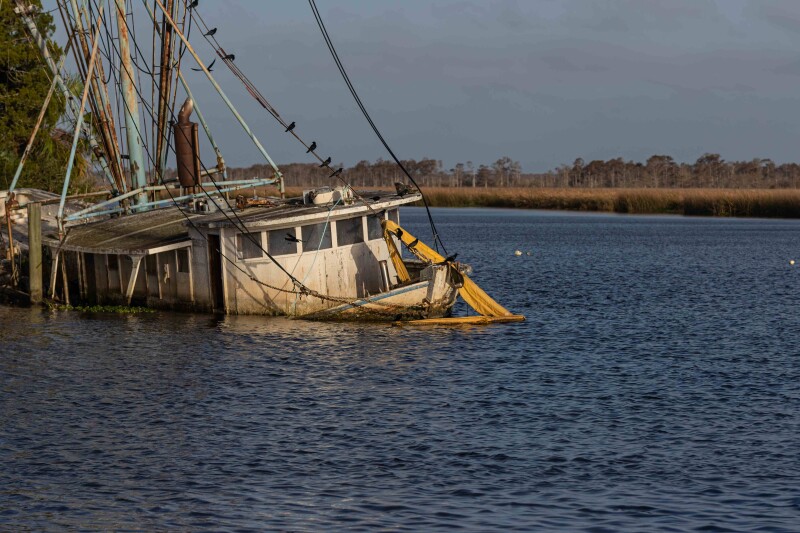In the wake of multiple hurricanes, Idalia, Debby, and Helene, Florida’s fisheries are confronting unprecedented challenges.
The natural disasters have caused severe damage to the state’s aquaculture, particularly impacting the clam and stone crab industries, which are vital to the local economy and the fishing heritage in the state.
Cedar Key is responsible for supplying 90 percent of the state’s farm-raised clams, and has suffered devastating losses. Joseph Cannon, a clam farmer in the area, faces potential financial ruin as his operations across 20 leased ploys have been severely impacted by the storms. According to The Times, the storms have destroyed clam beds and displaced essential farming materials, with many farms reporting substantial losses. The lack of insurance for clammers and inadequate state and federal relief has left farmers like Cannon struggling to rebuild. Cannon fears the ongoing stress and uncertainty may ultimately force him to lay off workers and shut down operations without significant government support.
The FISHES Act, recently signed into law, will expedite the process of delivering critical air to fishing communities affected by natural disasters and other devastating events. Rep. Byron Donalds (R-Florida), one of the bill’s sponsors, stated, “The state of Florida alone has requested fisheries disaster relief on seven different occasions since 2012; however, on each occasion, over two years has lapsed from the time of approval to when fisheries disaster relief funds were ultimately made available. This is simply unacceptable."
Uncertainty For Stone Crabbers
The Florida Keys’ stone crab season, which runs from October 15 to May 1, is highly anticipated across the states. Stone crabs, well known for their meaty claws, are sustainably fished, allowing them to regenerate their claws annually. Despite the hurricanes causing uncertainties affecting crab populations, restaurants across Miami and the state’s other larger cities are prepared to feature well-known stone crab claws on their menus.
Hurricane Milton destroyed many landmarks on Anna Maria Island on October 10, including the historic Rod & Reel Pier. Established in 1947, the pier embodies the “Old Florida” charm, creating a unique restaurant environment with scenic views and seafood offerings. Despite the destructions, the community is launching a fundraiser to rebuild the pier to ensure its legacy for future generations.
In another response to the environmental challenges and destruction, Florida has launched a “speed dating for shellfish” initiative to save the endangered queen conch. Due to rising sea temperatures, conches in nearshore habitats failed to reproduce and expend energy on survival instead. The Florida Fish and Wildlife Conservation Commission has been relocating mollusks to deeper, cooler waters to stimulate mating. Over 200 conches were moved from Marathon’s coast to the Upper Keys’ offshore reefs this past summer, where they have already shown signs of successful adaptation. The project is also supposed by the Fish and Wildlife Foundation of Florida, aiming to restore the species and is part of broader efforts to cope with extreme ocean heat and other natural disaster challenges such as hurricanes.
Though Florida’s fisheries face the effects of natural disasters and environmental changes, the fishing community's resilience is evident. Sustained support from government and non-governmental organizations will continue to be essential to ensure the long-term viability of the fisheries in the area.







